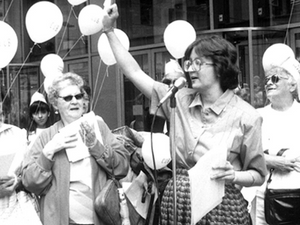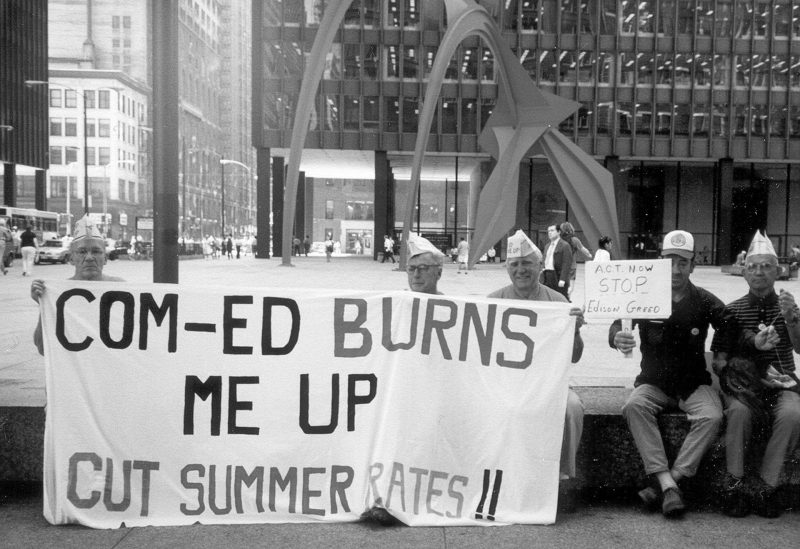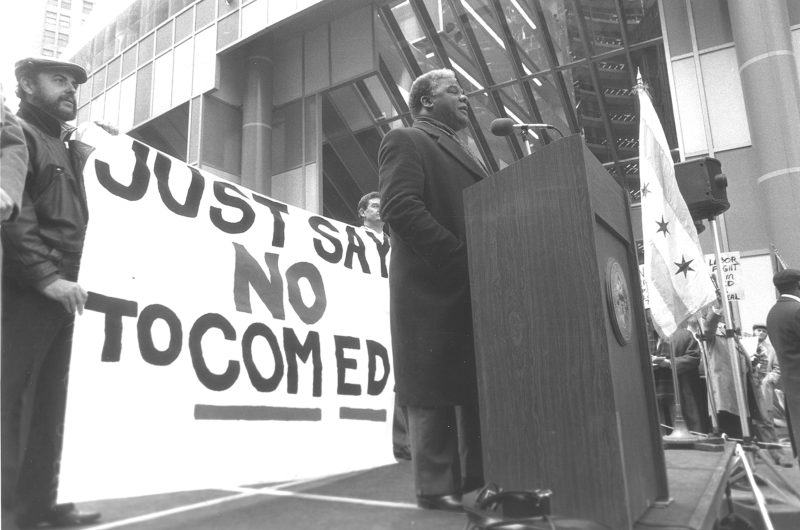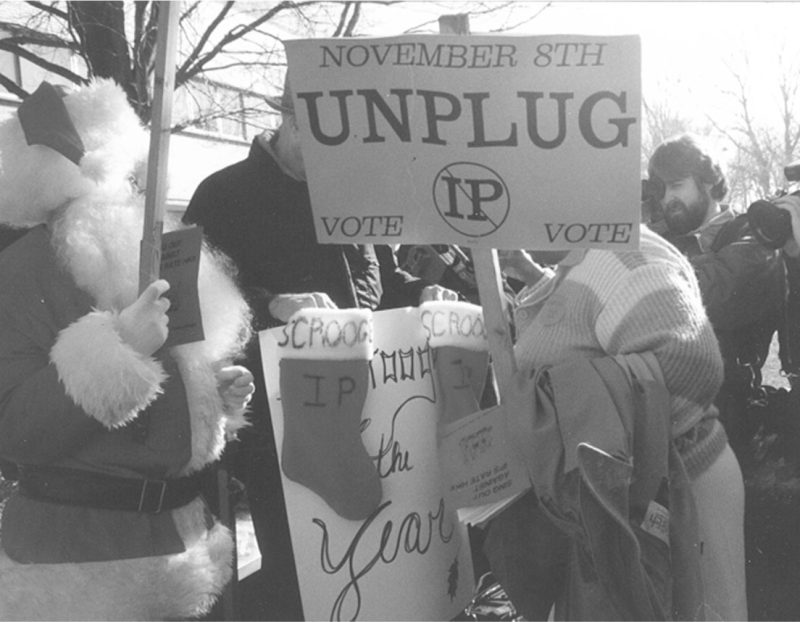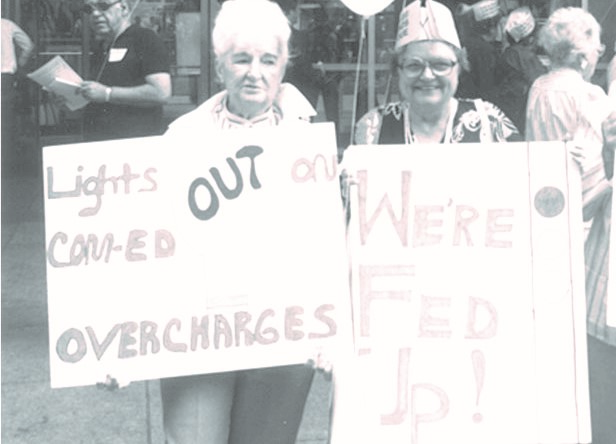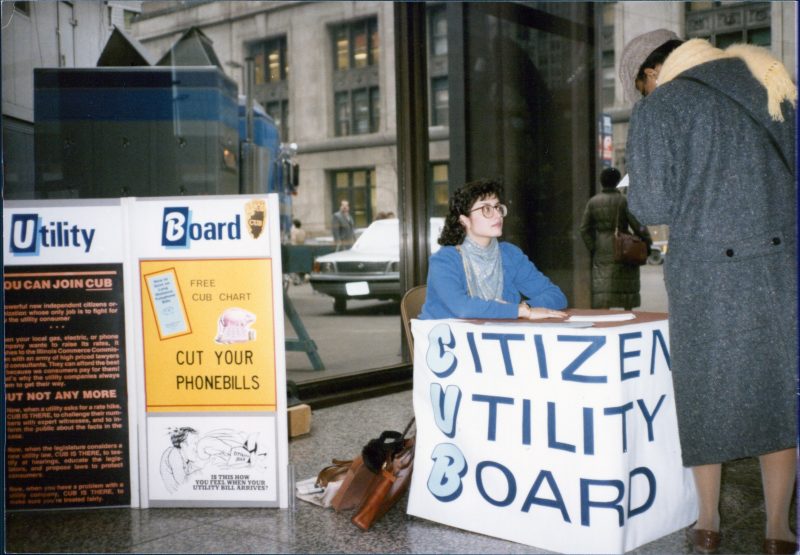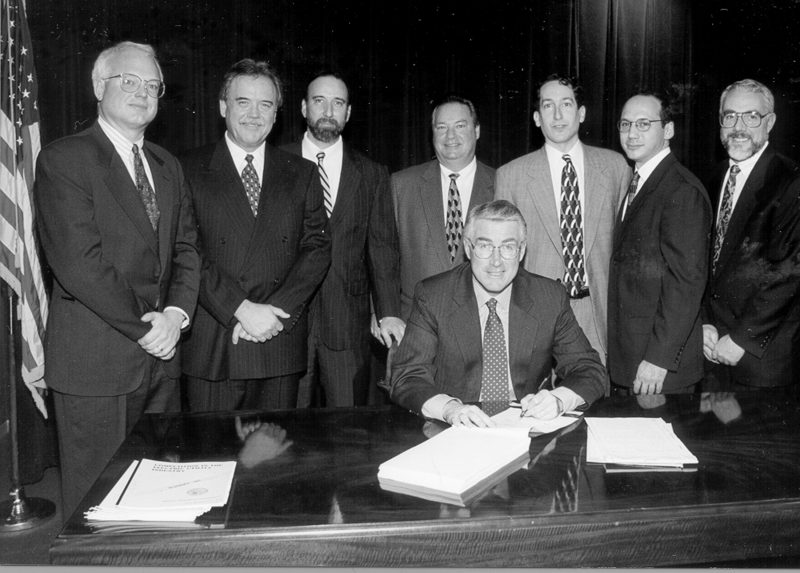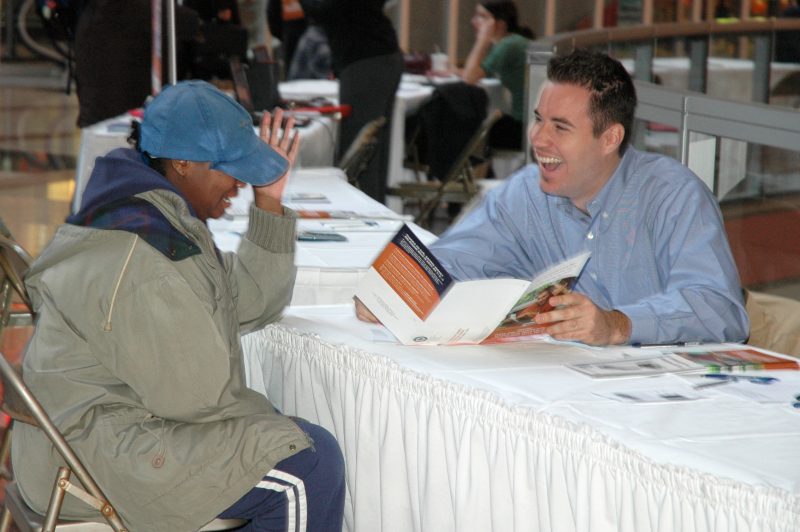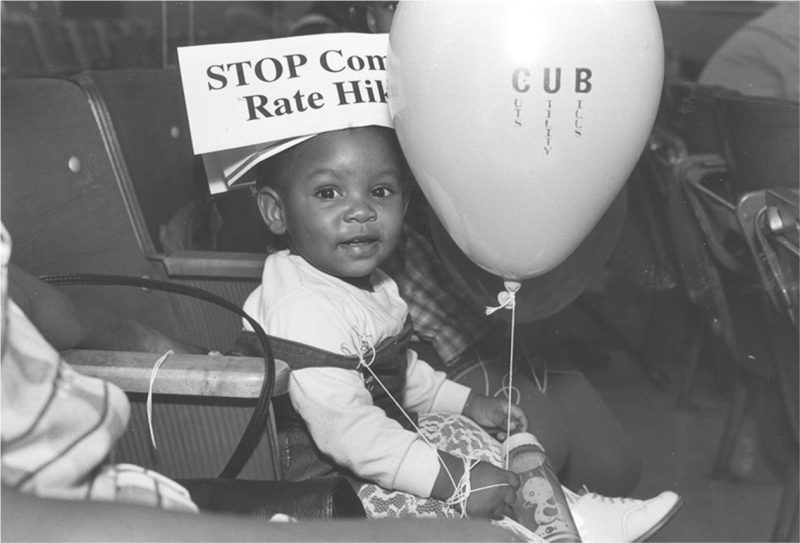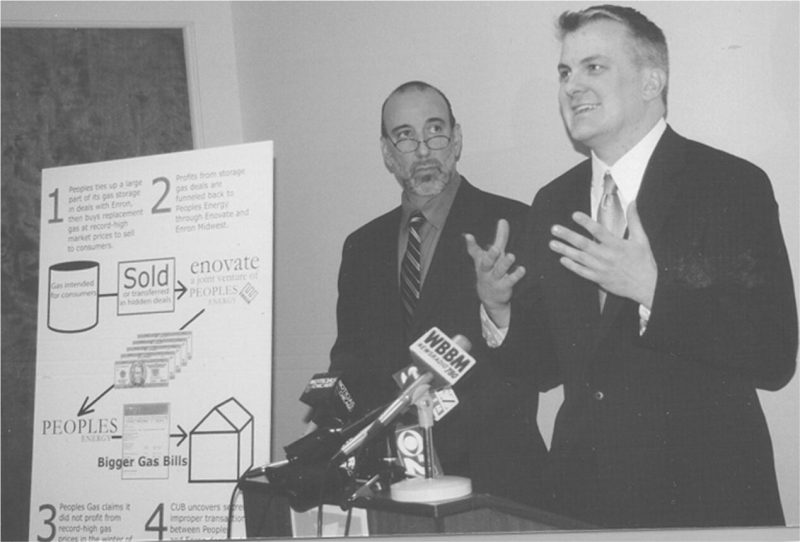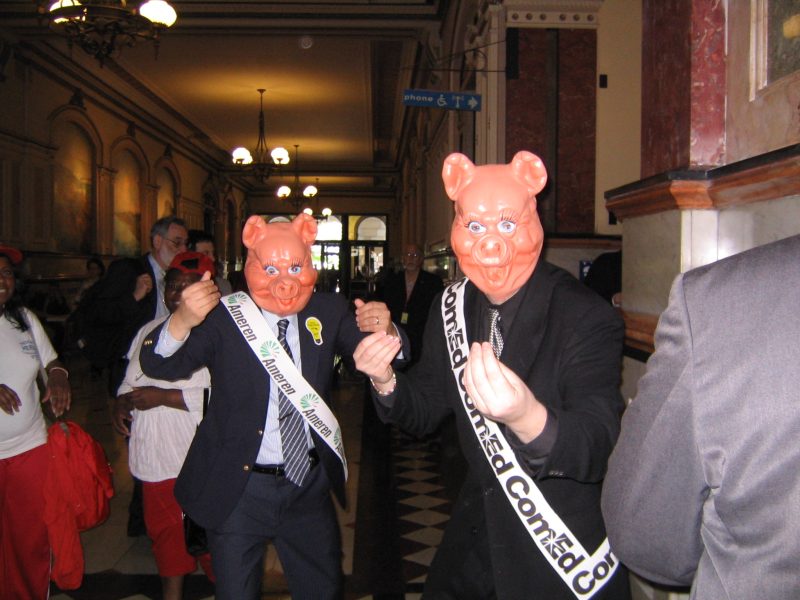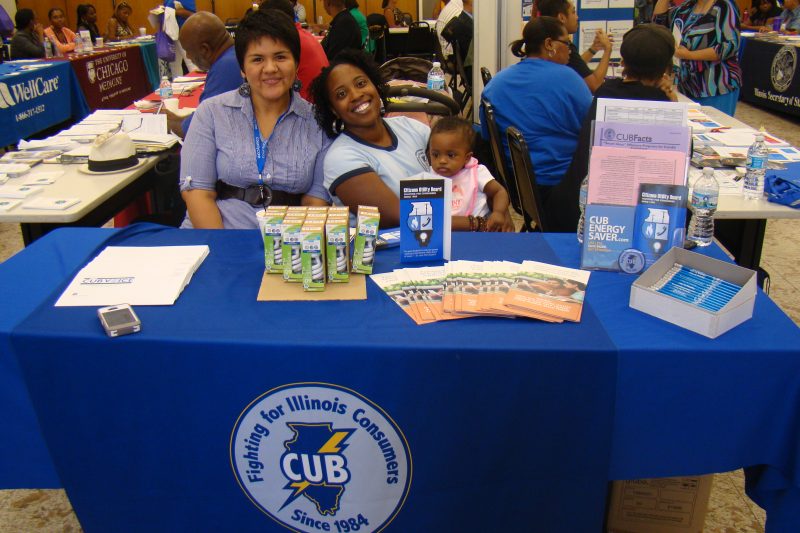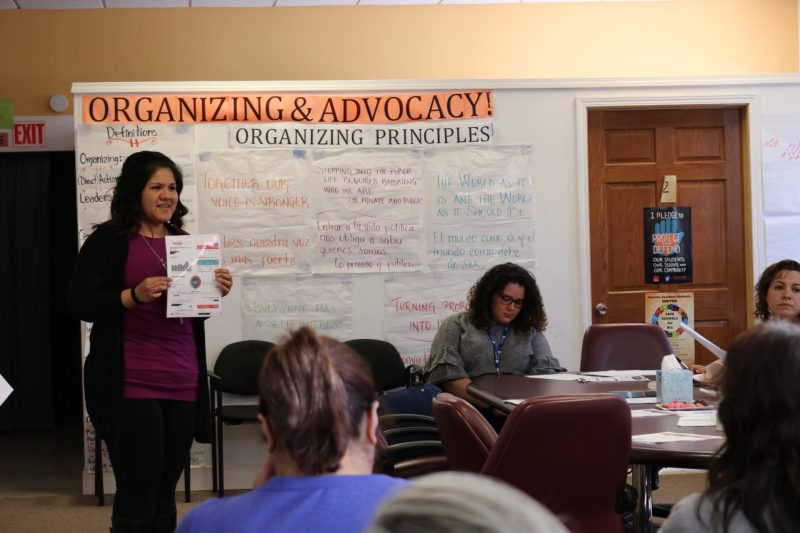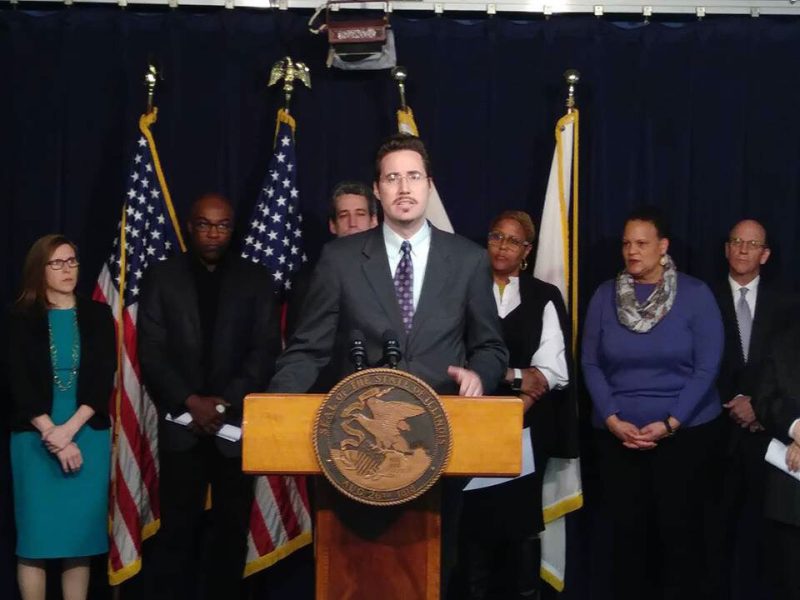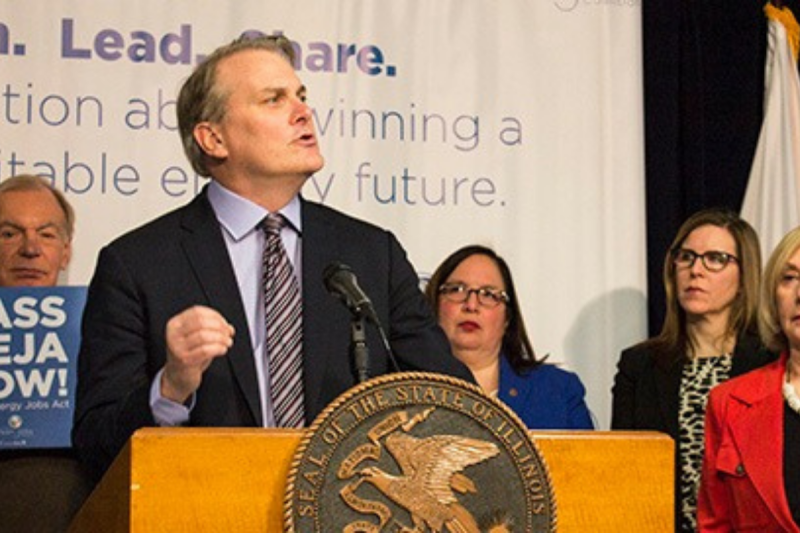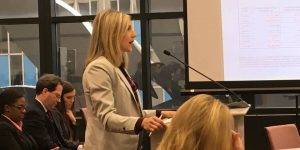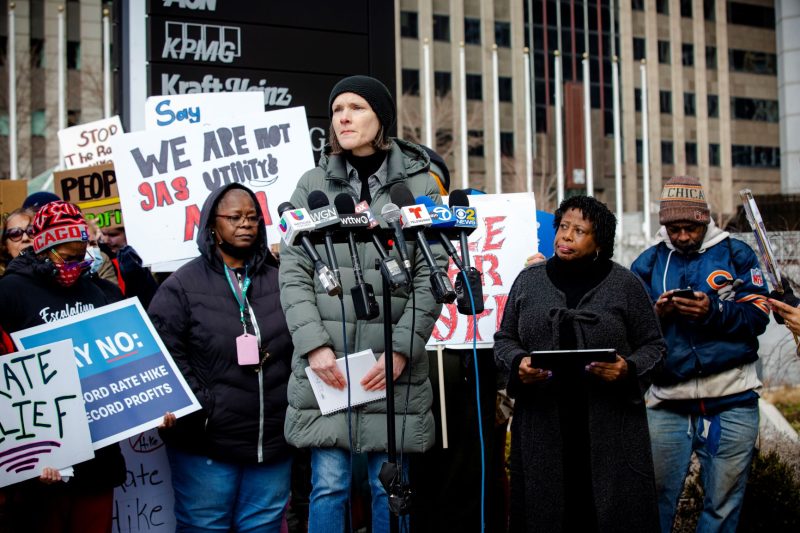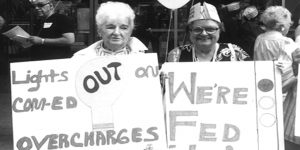
Early CUB activists.
Remember how bad it was before the Citizens Utility Board (CUB)?
It was the spring of 1983, and Gov. “Big Jim” Thompson was in a packed theater in southern Illinois pitching a tax increase—but people were more interested in what he would do about utility bills. What he said sparked applause from 200 Belleville-area residents.
“Let’s have a citizens utility board,” said Thompson, virtually assuring that the CUB Act, then before the General Assembly, would become law. He would sign it less than five months later, on Sept. 20, 1983.
It was the culmination of more than a year of hard work by consumers fed up with high utility bills, including 34-year-old activist Pat Quinn, who railed against “an unprecedented series of back-breaking” utility increases.
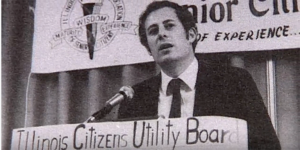
A young Pat Quinn, years before he became governor.
He led a statewide referendum movement in favor of creating a consumer watchdog group for utility customers. At the time, the idea was gaining popularity nationwide thanks to consumer advocates like Ralph Nader.
In Illinois, the headlines were dark those days. Facing criticism about cost over-runs, ComEd, which boosted profits by 35 percent in 1982, had a “continuing need for higher rates” largely fueled by power plant construction, the Chicago Tribune reported. The next summer, one Sunday front page warned: “Utility rates expected to double in 3 years.” There was talk of “a utility price disaster.”
No wonder frustration was palpable. “Send the flunky home!” someone shouted as a utility official tried to speak at one community meeting.
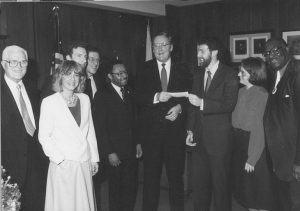
In 1984, State Comptroller Roland Burris (left) and Gov. James Thompson (center) presented CUB with a $100,000 state start-up loan. CUB Board President Howard Learner and Executive Director Susan Stewart accepted the check. We paid the loan back, with interest.
The birth of CUB came after advisory referendums were placed on the ballots of communities throughout
Illinois, thanks to the petition efforts of citizens. In November 1982, Chicago voted 4-1 in favor of a CUB, and in April 111 Illinois communities followed suit—sometimes by a pro-CUB margin of 14-1.
Such “whopping margins give us a lot of momentum to go down to the legislature,” Quinn said at the time.
He was right: By late May 1983 the House and Senate, which had observed the results of the advisory referendums, had both passed the CUB Act, setting the stage for Thompson’s signing.
CUB opened its doors in 1984. That year, the watchdog received a $100,000 state start-up loan, which the group paid back with, interest within two years.
The rest is history. Quinn, of course, went on to serve as governor and CUB went on to help save consumers more than $20 billion.
After local referendums across Illinois showed overwhelming support for a utility consumer advocate, state legislators passed the CUB Act in 1983 and CUB opened its doors the next year. The nonprofit, nonpartisan group was given a clear mission: To fight for the rights of Illinois utility customers.
A year after opening, CUB won landmark reforms to Illinois utility laws, requiring state regulators to conduct audits of utility plant construction costs and to cut down on imprudent spending. These reforms enabled the consumer group to set the stage for victories in the coming decades.
CUB and fellow advocates helped block a ComEd rate deal, saving consumers $1.9 billion. It was the first time ever that the Illinois Commerce Commission (ICC) rejected outright a ComEd rate hike.
CUB and fellow advocates helped save customers an estimated $3 billion in an Illinois Power rate-hike fight.
Multiple ComEd rate cases settled for a $1.3 billion refund and $339 million rate cut, cutting consumer utility bills by 25 to 30 percent.
On its 10th anniversary, CUB helped win a five-year rate cut for SBC (now AT&T) customers, for a total savings of $465 million.
Under a new electric deregulation law, CUB helped negotiate a record rate decrease—including a 20 percent cut for ComEd and Illinois Power customers. The total customer benefit was $6.2 billion.
CUB helped win $224 million in phone credits for Ameritech (now AT&T) customers. This credit averaged $50 per line for all residential and small-business customers and was the largest in Illinois history.
CUB helped defeat anti-consumer legislation and saved ComEd-Illinois Power customers $2.6 billion.
CUB helped uncover an illegal profit-sharing deal between affiliates of Peoples Gas and Enron Corp., resulting in a record $100 million gas refund.
CUB helped lead the “rate-hike” rebellion of 2007, after an Ameren and ComEd power-pricing plan sent bills soaring. In response, state legislators killed the plan, ordered $1 billion in consumer refunds and created the Illinois Power Agency, charged with securing the lowest prices possible for consumers.
CUB and other consumer advocates helped win a $72 million refund for Nicor Gas customers.
As an active member of the Illinois Clean Jobs Coalition, CUB helped pass the Future Energy Jobs Act (FEJA), sweeping energy legislation that included a historic boost to money-saving efficiency standards.
CUB worked with Illinois Attorney General Kwame Raoul and other consumer advocates to pass the HEAT Act, one of the nation’s strongest laws against alternative gas and electric supplier rip-offs.
CUB helped pass the Climate and Equitable Jobs Act (CEJA). This historic energy legislation set a goal of 100 percent clean energy for Illinois, expanded efficiency standards that had already saved consumers billions of dollars and made low-cost solar power accessible to more Illinois residents.
CUB helped win a $38 million refund for customers in the wake of the ComEd corruption scandal. It also helped secure major tax-related refunds for electric customers ($434 million for ComEd customers, and $50.8 for Ameren Illinois customers) in a much quicker schedule than the utilities wanted.
CUB challenged a state-record $2.9 billion in electric and gas rate-hike requests from major Illinois utilities, helping to reduce them by a total of $1.6 billion. The landmark regulatory rulings also temporarily halted major capital projects planned by Peoples Gas, Ameren Illinois and ComEd, until those companies could answer questions about their affordability for consumers and their project management.



